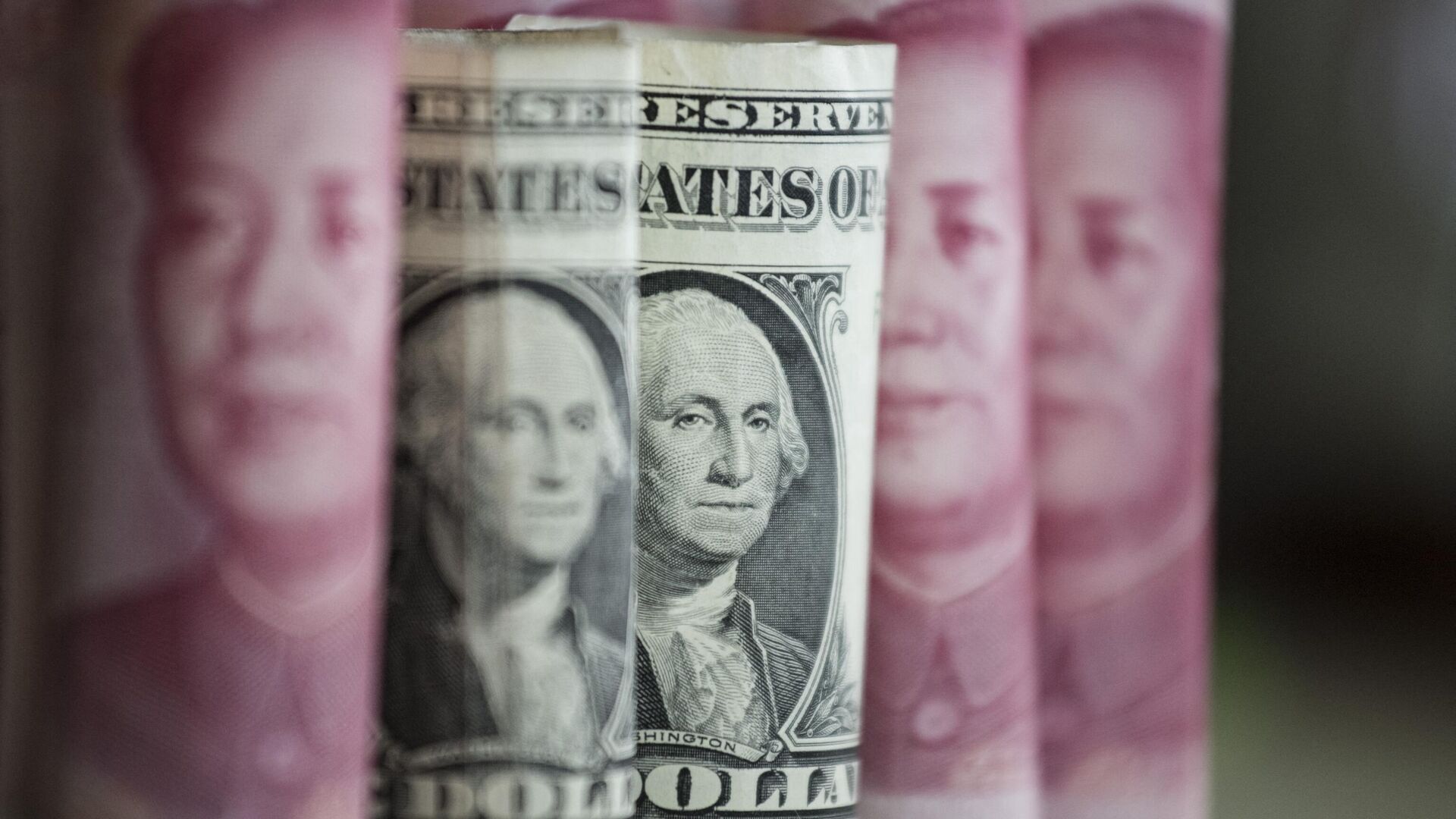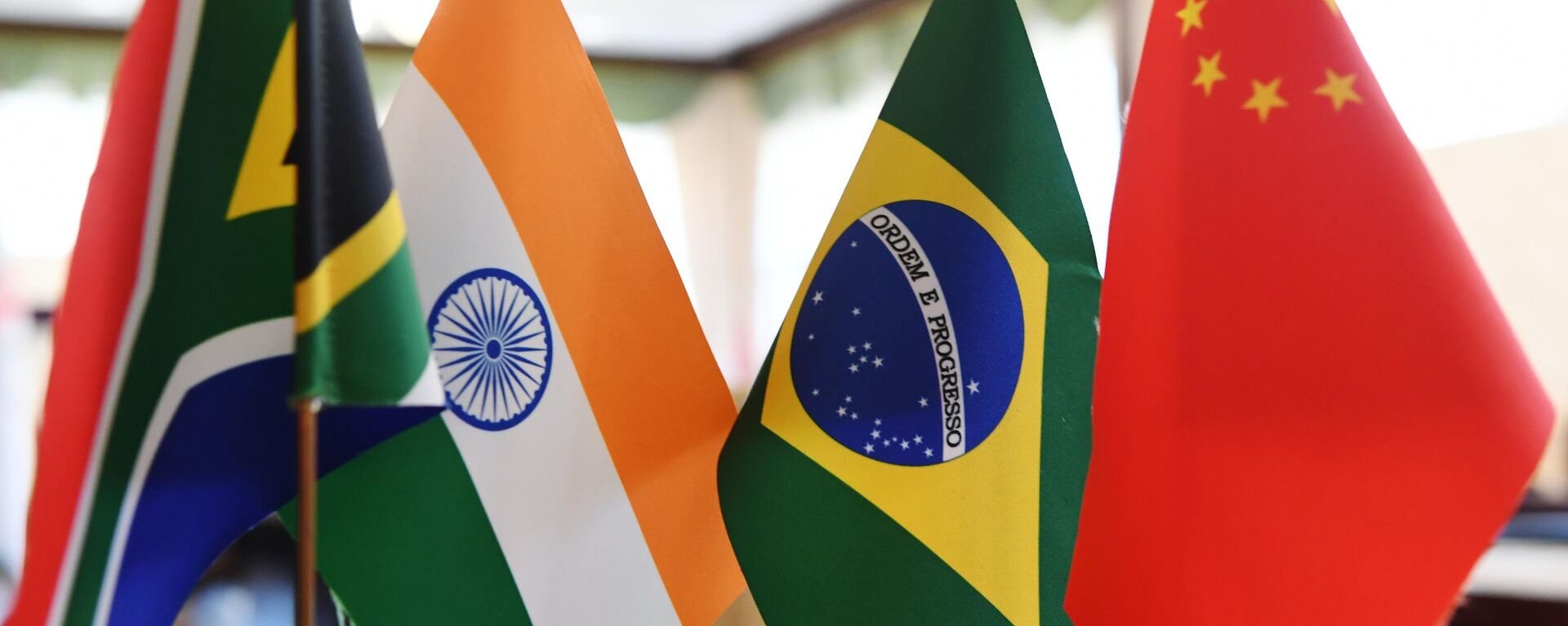US Dollar 'Not as Strong as Its Ideologists Claimed', Economist Says
14:52 02.05.2023 (Updated: 10:48 03.08.2023)

© AFP 2024 FRED DUFOUR
Subscribe
De-dollarization and the possible creation of a multi-polar economy have been more and more widely discussed, as numerous countries switch to national currencies in terms of trade. Last year, BRICS, a bloc of major developing economies, announced it is working on creating an alternative to the US dollar that would be backed by hard assets.
If the International Monetary Fund (IMF) recognizes that the economic sanctions imposed on Moscow in connection with the conflict in Ukraine failed to work, it means that the process of transformation of the world economy into a multipolar order has accelerated to a degree higher than the West acknowledges, economic analyst Oscar Rojas, Doctor of Political Economy at the National Autonomous University of Mexico (NAUM), told Sputnik.
On 28 April, the IMF published a report, in which it noted that Europe had suffered from economic sanctions against Russia because its energy resources were limited, while Russia "has shown to be more sustainable to sanctions than many analysts initially expected."
The expert emphasized that economic transformation against the background of the formation of a multipolar order "is proceeding at a more accelerated pace than it’s usually described."
"In recent history, the dollar was the last coin that had the ability to take control of almost 90 percent of [international] transactions. Therefore, from now on we`re going to see the reconstruction of the new structure of the currency basket," the specialist explained.
After the Second World War, "unilateral control was established by the US economy" over the entire world economic order, so "it was in this context of unilateralism that sanctions worked," the expert pointed out.
"This one-sided world no longer works, it no longer exists. It’s also related to the acceleration of integration that occurred with the globalization project after the fall of the [Berlin] wall," the Mexican economist noted.
Oscar Rojas has pointed out that the conflict in Ukraine and subsequent economic sanctions have accelerated the process of de-dollarization, which has already begun after the economic crisis of 2008 and gained momentum after the so-called "Arab Spring".
"After the 2008 crisis, everyone realized, and more so now with these processes of global inflation, that a currency like the dollar is not as strong as its ideologists claimed," the expert highlighted.
Despite this, there is still no tacit recognition of this phenomenon, as the imperial system works in two directions: administrative, where institutions such as the IMF come into play, and ideological, where the media are involved in a bid to "support the conceptualization of the previous model," Rojas explained.
"The resistance still exists, and that's natural. Historical phenomena always have a period when, so to say, they can die in one decade, and ideologically they disappear until the next. There is still a phase of adaptation and understanding of new phenomena," the academician stated.

